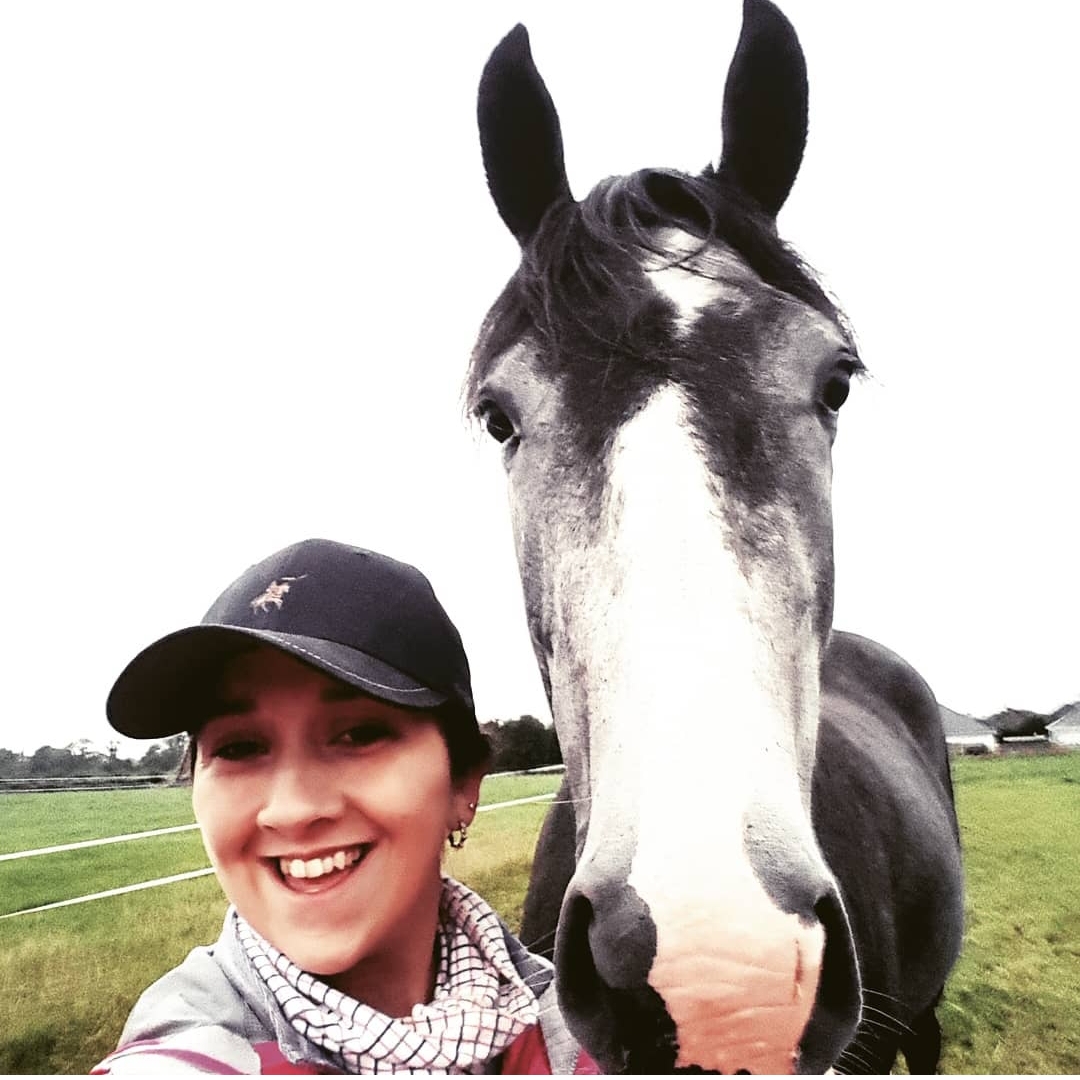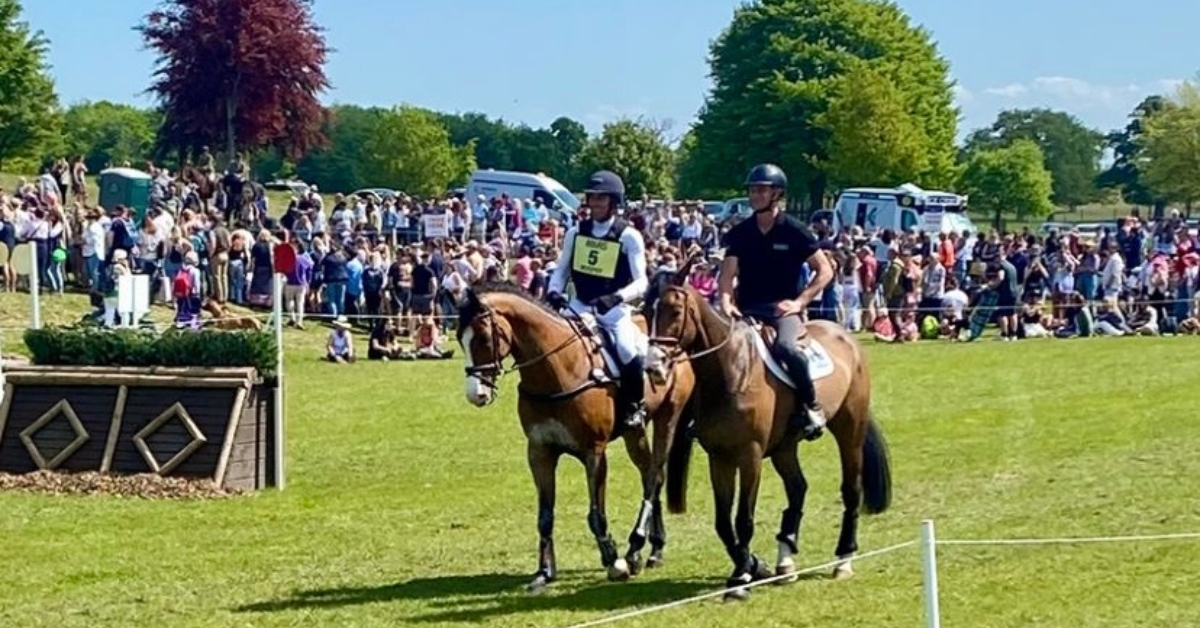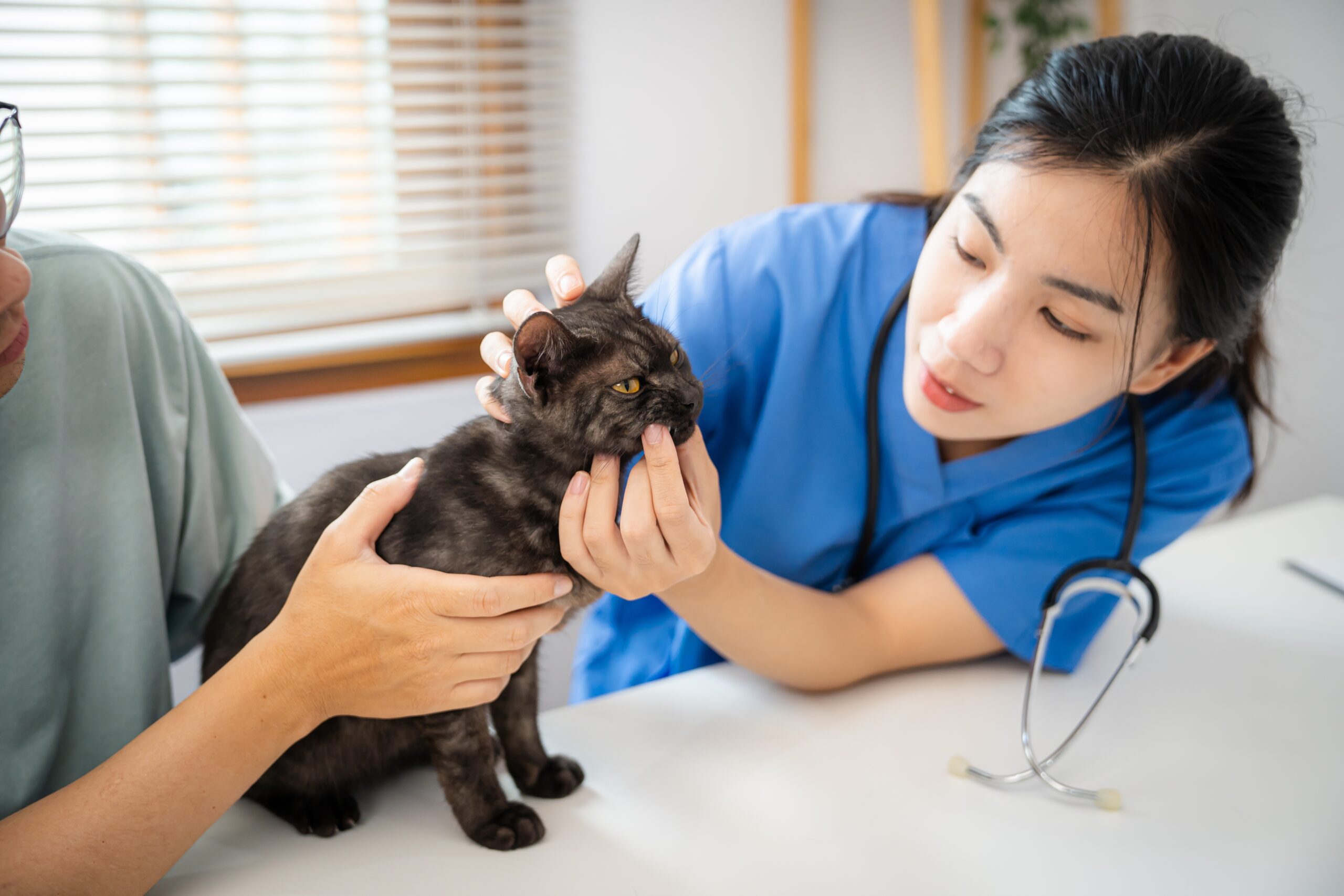By Sarah Campbell
I mean we all have methods we have learned over the years from a multitude of people that have shaped how we bring on our horses.
Last year, I had to find a new approach that would help me with my dominant two-year-old mare. I don’t agree with beating a horse into submission or having them do things out of fear. I rather have a connection with a horse ( as cliché as it sounds). I do believe a horse that trusts you and respects you will try far harder than a horse that is working out of fear.
I was introduced to groundwork exercises to teach both me and my mare about personal space, respect, and how to react to external pressures. Honestly, I have heard of groundwork but always thought of it as a bit of an odd way to approach a horse’s education. I didn’t see the sense in having a horse walk across a piece of tarp or be content with flags being waved around. It’s much more than just that, it’s about connecting with your horse on another level, through body language, respect, and an unspoken language between horse and rider. ( I know, it sounds very “my little pony” but trust me, it works).
I followed Miriam Hackett online and was in awe of what she could do with a horse when she listened to the horse to find a way to improve their behaviour, manners, and independence both on the ground and under saddle. Horses are fight or flight animals, as a result, they are always on guard and aware of their surroundings. ( sometimes too aware if you are trying to get them down to the “spooky” end of the school). Groundwork teaches horses how to be content and confident with all these situations going on around them and how to focus on the handler rather than the wind, or the horse in the next field.
My mare Zena, went from being a big dominant mare to a patient and confident three-year-old, I can’t tell you how much easier the backing process was as a result. The difference is remarkable and I will continue to use groundwork patterns all through her education and future horses. I am a firm believer in exploring new methods of training horses where fear is not a factor. There are many different methods of groundwork, I found the TRT method most suitable and beneficial to me and my horses. Go on, give it go, you know you want to.
The Ordinary Equestrian


Share
Your subscription is 100% Free for our first year, No credit card details required.

The Judging Concerns That Keep Coming Back — And Why They Can’t Be Ignored Anymore We didn’t make it to

There are few sporting events that live up to the hype. Wimbledon? Too many strawberries. Cheltenham? Too many suits. But

British Veterinary Association publishes full response to Competition and Markets Authority’s proposed remedies for veterinary market for household pets. The